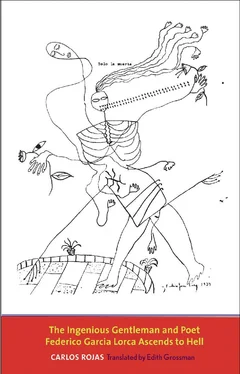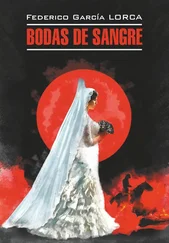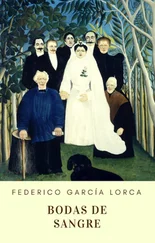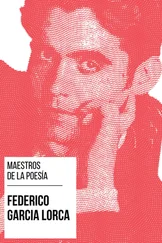Right now I see, because I wanted to, the aurora borealis over the Edem Mills lake, lighting up schools of red fish at the bottom of a stand of bulrushes snowy with minute white snails, just as I contemplated it in the summer of 1928 or 1929, in mid-August. I see that caveman, the same one who painted the bison at Altamira and in our world was the Nazi sculptor Arno Breker, after Jules Verne found him in the middle of one of his novels and at the center of the earth. Still in the brilliance of the aurora that sets the night and the fish ablaze with its most fiery red, I see Julius Caesar (a Julius Caesar whom I always imagined resembling Ignacio Sánchez Mejías) reciting unrhymed couplets of satanic pride: “I’d rather be first in a village / than second in Rome.”
In the same mix of resuscitated memories, visions of other reveries of mine appear at the edge of the lake and in the middle of the stage. I see Achilles the swift-footed, a pederast too for love of Patrocles. Centuries before Caesar was conceived and in some reading of my adolescence, I learned what he said to Ulysses when he went down to visit him in hell: “Don’t try to console me for my death. It’s better to serve a beggar than rule over all the dead.”
Only now, dead and in this theater, do I understand Caesar’s source when he plagiarized that unrhymed couplet after deforming it to the bombastic measure of his pride. In the final analysis, I suppose that power on earth is always reduced to this: to plagiarism. In other words, which are those of the learned men of the Royal Academy of the Castilian Language, to the subjugation of free men into slaves or the abduction of other men’s servants to make them one’s own. Nothing more but nothing less either. Know this.
With a voice that comes from the obscure roots of a scream and from this corner of eternity, I would like to shriek at you the despair of Achilles in the kingdom of shades. To tell you in a shout, even though you might not be able to hear me, that it is better to be the lowest of men, a beggar, a hangman’s apprentice, a lackey, or an all-powerful despot, than to be king of the dead. A monarch preceding time, light, space, and silence itself, an absolute sovereign as eternal as the void, the master and creator of hell, who must reign over all the dead even though we don’t know his name and his face.
Any instant of my fleeting, precipitate life, any of the moments now present and impossible on the stage in this theater, is better than immortality in hell. Even if the dead have nothing and aren’t anyone, I’d give everything to really relive the simplest or most terrible of those hours that have fled, even the moment of my own death at the hands of my fellow men. To tread again with my own footsteps, the measure of my liberty for I could take them or not, the rainbow on the asphalt of Manhattan after the last summer rains, while the street burns in long gleaming striations that resemble agate in the twilight. Dazzling streams at the feet of the line of unemployed waiting for Al Capone’s charity soup at Saint Patrick’s refectory. To return to the Café Alameda, where I saw Ignacio Sánchez Mejías for the first time on earth, before people and pride separated us. To hear him say again: “Do you know what Pepe-Hillo replied, when he was fat, old, and suffering from gout and they advised him to abandon bullfighting? I’LL LEAVE HERE ON MY OWN TWO FEET, THROUGH THE MAIN GATE, HOLDING MY GUTS IN MY HANDS.”
The magic of free will in hell incarnates those memories on stage. Still, the flashes from the past are always painted, not live. If I go up on the boards, so often confused by their apparent veracity, they vanish immediately at my approach. As a fata morgana flees before you tread on it, or vampires turn to ash at dawn. The proscenium and set are empty beneath the arch and raised curtains. The light from the transoms, which recalls amber or alabaster, illuminates only my shadow on stage. The useless shadow of a dead man, alone in eternity with the mirage of his memories.
In reality there was no encounter between Ulysses and Achilles in Hades either. A blind man merely dreamed it for us. Death is a solitary confinement where each of the dead has an empty theater along the spiral of hell. That is the tragedy of immortality before the spectacle of what has been lived: not ever being able to share it with anyone, as if I were the only man who has lived in vain on earth. Or just the opposite, as if I were the only dead man in the world. Imagine Robinson Crusoe on his island, or better yet, imagine him on the head of a pin, suddenly realizing that in the middle of the night and the universe he is completely alone, as if he were the guilty conscience of all creation. That is the fate of each of us.
You who are alive, who caress the back of a cat or a woman and see the sparks from the stroke of your hand, you fear death because you think it means the loss of consciousness. This may be the greatest irony of human reason in the void of an irrational firmament. You will never be able to imagine the martyrdom of living eternally awake. All I want now is to renounce immortality. To sleep at last and to sleep forever, free of words, memories, even dreams. “Now I shall go to sleep,” said Byron in his agony, as he turned to the side his profile worthy of a Roman coin on a cot in Misolonghi, where he died in vain for the freedom of Greece. DORMEZ read the stone on a mass grave of those guillotined in the name of reason and the rights of man.
Vanity of vanities of a species that has not always been human and perhaps is destined to cease being human! Chosen from a time before all times, to be transformed the day after tomorrow into the fish in the Edem Mills lake lit by the aurora borealis in the Vermont night! You are condemned to be immortal. To endure awake, insomniac, and alone forever because this void where you dissolve and come to an end does not exist. It has never existed and this is the greatest irony of our fate! Know this!
“Death terrifies me,” I once told Rafael Alberti and María Teresa León, I don’t know if it was years or centuries ago. The three of us were standing in a field of flowering teasel before the Castle of Maqueda. In their luminous youth, in the sun of a resplendent Sunday, they both seemed to have come from a Florentine altarpiece. Alberti shook that profile of his, which like Byron’s you would say had been minted into imperial sesterces. He replied that he could not decide when he thought about which would be the greater of two horrors, the uncertainty of our fate in death or its interminable eternity. I interrupted him and said that whatever might happen to me after I was dead, whether it was nothingness, the lucid bliss anticipated by Fray Luis de León, or a medieval hell, didn’t matter to me. My panic, my absolute terror was simply the loss of my self: the inevitable renunciation of all I had been and who I had been until then. I never could have imagined, as perhaps no one in the world ever has, that death was in fact a sentence to be precisely who we were, fully conscious of ourselves, through all of time and perhaps beyond days and centuries.
That night, thinking perhaps about Rafael and María Teresa in the middle of the field, I wrote one of my sonnets of dark love. I learned afterward that it was interpreted as a poem of love for a man, because in my country nothing and no one has ever been judged correctly. In reality it was the expression of my old terror, just as I had stated it before the Castle of Maqueda. Desperation at the certainty I felt then that one day I would cease to be who I was among my fellow humans. In the long run, the poem was about irrevocable love though the loved one was me: that poor creature with his burning consciousness, like a match lit at the center of the world, condemned to disappear and be negated. That is what I believed then, though in hell I laugh when I remember it.
Читать дальше












